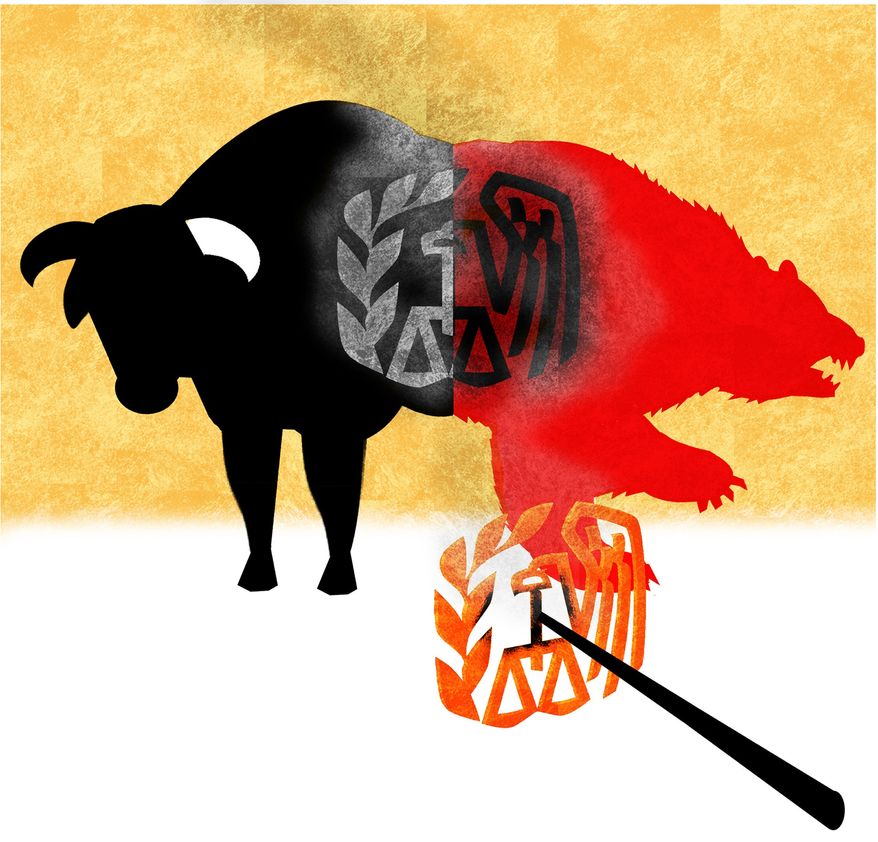What do you think the worst tax is? The capital gains tax is a good candidate. Capital gains are considered income by the IRS, even though they merely reflect a change in the price level — and most capital gains taxes are a tax on inflation. Inflation is caused by government mismanagement of monetary and fiscal policy. Inflation gives the illusion of increased wealth even though purchasing power has not increased.
If you owned property (real estate, stock, bond, or any tangible property) and sold it more than a year later (a one-year holding period is required for a long-term capital gain), but the increase in sales price was not sufficient to compensate for the rate of inflation, the IRS would claim you had a gain upon which you are required to pay a capital gains tax. In reality, you suffered a loss in terms of purchasing power. The IRS would apply a tax of up to 25% on the illusionary gain, and if you live in a high-tax state like California, the total tax (state plus federal) could be as high as 39% of your illusionary gain. (Another reason California is economically dying relative to states without capital gains taxes like Florida and Texas.)
The treatment of losses is even more despicable. If your total losses from sales of various assets are so large that even the IRS acknowledges that you had a real loss, it then turns around and limits the deduction for those losses in any given year — heads they win, tails you lose. (Outside of government, the way that capital gains are taxed with no adjustment for inflation and limitations of taxable losses would be known as theft — but that basic Judeo-Christian concept is absent from the halls of Congress and the IRS.)
If there is no inflation, the capital gains tax just becomes another destructive tax on capital by reducing the amount of productive investment, and thus job creation and real incomes. But in inflationary times, the capital gains tax often becomes downright confiscatory in that effective rates often exceed 100%, as previously noted.
For decades, up to 1968, the federal capital gains tax rate had been 25%. Beginning in 1968, about the same time great inflation began to heat up, the federal government engaged in a series of capital gains tax rate increases, reaching a high of about 40% in 1978. Such a rate, coupled with double-digit inflation, greatly depressed the stock market and almost destroyed the timber industry (e.g., trees are an agricultural product with very long growing cycles, typically 35 to 60 years, and thus very sensitive to high capital gains tax rates).
The state of Washington is one of the states that do not have an income tax, but for years, big-spending politicians have been trying to impose one. They did manage to pass a capital gains tax, which was immediately challenged on the basis that the proposed capital gains tax was unconstitutional because of the income tax prohibition. Last month, the state Supreme Court upheld the constitutionality of the capital gains tax, stating it was an excise tax, which is a tax on the sale of a good or service and not a tax on income. During the last bout of high inflation in the 1970s, there was a spirited debate among economists, with many arguing that capital gains stemming from a change in the price level were clearly not income. The state of Washington’s Supreme Court has adopted that position.
In 1978, some of the more enlightened members of Congress, notably Rep. Bill Steiger, Wisconsin Republican, and Sen. Cliff Hansen, Wyoming Republican, seeing the unfolding economic disaster that was occurring because of the interaction of high rates of inflation and high capital gains rates, led the passage of a bipartisan tax bill to reduce the maximum capital gains rate from 40% to 28%, later reduced to 15%. The result was that capital gains tax realizations soared, and capital gains tax revenue greatly increased.
(The capital gains tax, to some extent, is a discretionary tax, in that for the tax revenue to be realized, people have to voluntarily sell the stocks, bonds, real estate, or other assets; but if they perceive the tax to be too onerous, they will refuse to sell — known as the lock-in effect.)
By 2013, Congress forgot the earlier lessons and again raised the capital gains tax rate. The Biden administration has even proposed taxing unrealized capital gains — a truly loony idea that would be both unworkable and economically destructive. If the proposal passes, which fortunately is unlikely, people could find themselves having to pay tax on imaginary income they had not received. Until a capital asset is actually sold, no one can say with certainty what the value is. Would the government pay for unrealized capital losses — and who would decide?
It is unambiguously clear that the portion of any capital gain due to inflation is not income in any economic or common-use English-language sense. It will be interesting to see how many people start refusing to pay the capital gains tax as part of their income tax bill, given that the position of the state of Washington’s Supreme Court is that capital gains are not income and hence not subject to the income tax.
• Richard W. Rahn is chairman of the Institute for Global Economic Growth and MCon LLC.
https://www.washingtontimes.com/news/2023/apr/17/destructive-capital-gains-taxes-and-inflation/
© Copyright 2023 The Washington Times, LLC.
